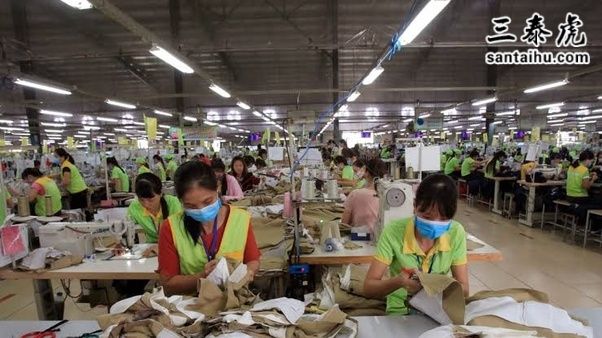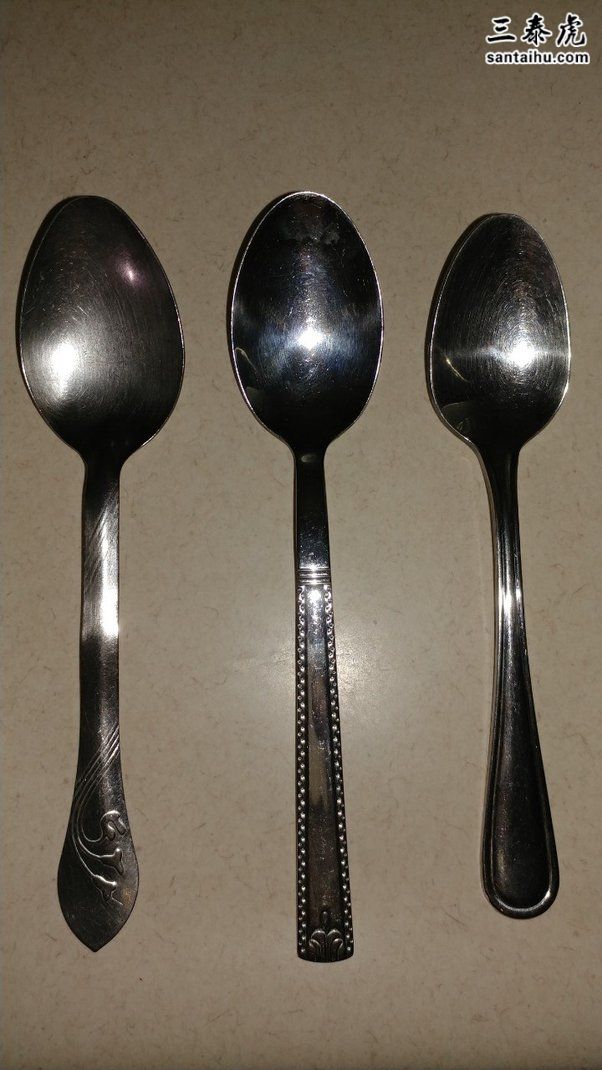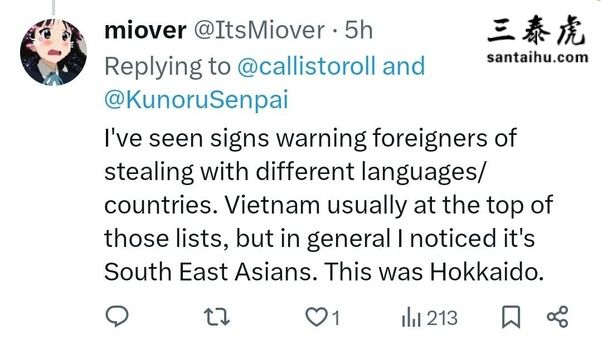How strong is Vietnam's industry compared to China's?
与中国相比,越南的工业有多强
以下是Quora读者的评论:
Kanthaswamy Balasubramaniam
I visited Vietnam for 8 days recently
No comparison whatsoever
Here are some points :-
#1 Vietnam has virtually NO supply chain
Every factory in Vietnam runs on Chinese Machines most of the time Or in some cases German Machines
Most of the parts for Final Or Secondary Assembly come from China
#2 Most of the Industry is still Low Grade
毫无可比性
原因如下:
其一,越南实际上并无完整供应链。
多数时候,越南的工厂大多使用中国机器,部分情况下会用德国机器。
最终或二次组装所需的大部分零部件都来自中国。
其二,越南多数产业仍处于低端水平。


The Largest Four Factories in the Mekong region make Textiles, Textiles, Bakelite Moulds for Phones & Cardboard Boxes
Vietnamese Industry is close to 90% Low Grade and 10% Medium Grade - similar to what China was between 2003–2007
湄公河地区最大的四家工厂分别从事纺织业、纺织业、手机胶木模具生产以及纸箱制造。
越南近90%的产业为低端产业,10%为中端产业,类似中国2003 - 2007年的水平。
#3 Vietnam has a Pretty Low Supervisory Force
Vietnam has a some Engineers educated in places like Singapore but even so 80% Supervisors are Chinese
Vietnam as yet don't have the volume of Skilled Workers that is needed to migrate to Medium Or High Grade Manufacture
其三,越南的监管力量相当薄弱。
越南有一些在新加坡等地接受教育的工程师,但即便如此,80%的监管人员还是中国人。
越南目前尚不具备向中高端制造业转型所需的大量技术工人。
However some positives include
A. Vietnam has a decent Skilled Labor Force and a lot of women laborers
B. Vietnam has 15 Industrial Parks where they now make Mid Quality Products like Branded Razor Blades & I Pads
However Vietnam lacks the Logistics & Supply Chain potential of China by a very long way off
不过,越南也有一些积极因素:
A. 越南拥有相当数量的技术劳动力,且女性劳动力众多。
B. 越南有15个工业园区,现已能生产如品牌剃须刀片和iPad等中等质量的产品。
然而,越南在物流和供应链潜力方面与中国仍相差甚远。
Eastern Laos Legend
How can a country of 100 million people, still backward, be stronger than the industrial powers as China, Japan and South Korea?
NO! no way.
Vietnamese people are making slow progress in heavy industry development, but have made great strides in the fields of information technology, AI, and telecommunications. Of course that is not enough.
一个拥有1亿人口却仍处于落后状态的国家,怎么可能比中国、日本和韩国这样的工业强国更强大呢?
不!绝无可能。
越南人民在重工业发展方面进展缓慢,但在信息技术、人工智能和电信领域取得了长足进步。当然,这还远远不够。
Vietnam has no breakthrough in research, education and self-reliance development. Attracting foreign investment capital and foreign intelligence is only a short-term problem. Until Vietnam's natural resources are exhausted, every thing will go in another direction.
If this country do not study, learn and work diligently to grasp the future destiny of the country, this country will certainly become an economic vassal of China or the United States in the future.. Currently, the major powers mainly dominate the economy, which is the ultimate card that influences politics.
越南在科研、教育以及自主发展方面尚无突破。吸引外国投资和引入外国人才只是短期举措。等到越南的自然资源消耗殆尽,一切都将走向另一个方向。
倘若这个国家不勤奋学习、努力工作以掌握国家的未来命运,那么它未来必定会成为中国或美国的经济附庸。当下,大国主要通过掌控经济来施加影响,这也是左右政治的终极王牌。
Tufshini Dash
What does Vietnam do better than China?
Asians love noodle dishes, especially noodle soups. Asian countries have their variety of own versions of noodle soups such as Mongolia’s guriltai shul, China’s niurou mian. And we often compare Asian countries by their noodle soups. Vietnamese noodle soups are definitely superior to Chinese ones.
Koreans enjoy authentic Vietnamese food
越南在哪方面比中国做得好?
亚洲人喜爱面食,尤其是汤面。亚洲各国都有各自特色的汤面,比如蒙古的古日勒泰舒尔(guriltai shul)、中国的牛肉面。我们常常会通过汤面来比较亚洲国家。越南的汤面绝对比中国的更胜一筹。
韩国人就很喜欢正宗的越南美食。


The Vietnamese food craze in Korea started about 20 years ago, as Vietnamese restaurant Pho Hoa opened in Gangnam area in 1998. A number of restaurants followed suit, building on the fad. “Pho is well-liked by Koreans because it appeals to the local taste that favors soup,” says Park Hong-in, chief editor of Bar & Dining.
大约20年前,随着1998年越南餐厅“Pho Hoa”在韩国江南区开业,越南美食在韩国掀起热潮。众多餐厅纷纷效仿,使得这股热潮愈演愈烈。《酒吧与餐饮》主编朴洪仁(Park Hong-in)表示:“越南河粉深受韩国人喜爱,因为它迎合了当地人喜爱汤品的口味。”
Banh Dau
Is made in Vietnam better than made in China?
Can you tell which spoon is “made in China” and which one is “made in Vietnam”?
越南制造比中国制造更好吗?
你能分辨出哪把勺子是“中国制造”,哪把是“越南制造”吗?

Place of origin does not decide quality of products. What decide the quality are the specifications of the customers and the quality control.
A little while ago, I saw a set of American branded silverware in Costco, and expected it to be “made in China”. To my surprise, it was “made in Vietnam”. The quality is just as good as “made in China”. I would have bought it if I didn’t already have too many forks. So on my trip to Vietnam last summer, I bought a bunch of “made in Vietnam” spoons (I picked the cheapest in store, so there are even better ones). Can you tell which one in the picture?
产地并不能决定产品质量。决定质量的是客户的规格要求以及质量控制。
不久前,我在好市多(Costco)看到一套美国品牌的银质餐具,本以为会是“中国制造”。但令我惊讶的是,它是“越南制造”。其质量和“中国制造”的一样好。要不是我已经有太多餐叉了,就买下来了。所以去年夏天去越南旅行时,我买了一堆“越南制造”的勺子(我选的是店里最便宜的,所以肯定还有更好的)。你能从图中分辨出是哪把吗?
Apparently, Samsung, and many other manufacturers: Canon, Brothers, Intel etc. consider “made in Vietnam” is just as good as “made in China” since the process, the specs, and the QC are from those manufacturers themselves; Vietnam only supplies the labor. So there should be no difference in quality when it comes to foreign brands.
If the comparison is between homegrown Vietnamese brands, and Chinese brands, then Chinese brands may be better (for now, and only in high-tech products), since China has a head start on tech transfer from foreign companies, and Vietnam’s firms are not as knowledgeable and advanced yet.
显然,三星以及佳能、兄弟、英特尔等许多其他制造商都认为“越南制造”和“中国制造”一样好,因为生产流程、规格以及质量控制都由这些制造商自己把控,越南只是提供劳动力。所以对于外国品牌来说,质量上应该没有差异。
如果是越南本土品牌与中国品牌相比较,那么(就目前而言,且仅在高科技产品方面)中国品牌可能更胜一筹,因为中国在从外国公司进行技术转让方面起步较早,而越南的公司在知识储备和先进性方面还稍逊一筹。
David J Wong
Here’s an anecdotal story.
A couple of months back, I visited a potential OEM partner in China. They had a major manufacturing facility in Ningbo and an even larger one in another Chinese city (can’t remember which one, maybe Chongqing). Notably, in 2014 they had also set-up a company and manufacturing facility in Vietnam — before the first Trump presidency.
I commented to the person hosting me how prescient this decision appeared to be, particularly given the trade war that subsequently erupted between the US and China.
这里有个真实小故事。
几个月前,我去拜访了中国一家潜在的原始设备制造商(OEM)合作伙伴。他们在宁波有一个大型制造工厂,在另一个中国城市(我记不清是哪个城市了,可能是重庆)还有一个更大的工厂。值得注意的是,早在2014年,也就是特朗普首次当选总统之前,他们就在越南成立了一家公司并设立了制造工厂。
我跟接待我的人说,这一决策显得多么有先见之明啊,尤其是考虑到随后中美之间爆发的贸易战。
She agreed that it had indeed been a smart move by the CEO of the company. But she also commented that finding skilled labor in Vietnam was difficult; their Chinese employees still had to fill most of the supervisory positions in their Vietnam factory. Bear in mind this is not a technology company making high-end tech products.
On the other hand, we just hired a software developer out of Vietnam. He’s proving to be quite a good addition to our dev team and our head of product says he’s pretty skilled. And there isn’t a week that goes by that I don’t receive an email from some software outsourcing company in Vietnam offering their services.
I think this sort of shows where Vietnam is at the moment. It has huge potential. It will benefit from the Trump tariffs on China as more Chinese companies look to offshore their manufacturing. But there are also very clear barriers.
她认同这确实是公司首席执行官的明智之举。但她也提到,在越南很难找到技术熟练的劳动力,他们越南工厂的大部分管理岗位仍需中国员工来填补。要知道,这可不是一家生产高端科技产品的科技公司。
另一方面,我们刚从越南聘请了一位软件开发人员。事实证明,他是我们开发团队中相当出色的新成员,我们的产品负责人说他技术相当娴熟。而且,每周我都会收到越南一些软件外包公司发来的推销服务的邮件。
我认为这在一定程度上展现了越南目前的状况。它潜力巨大。随着更多中国公司寻求将制造业外包,越南将从特朗普对中国加征的关税中受益。但越南也面临着非常明显的阻碍。
Alex Smith
Is China's manufacturing sector under threat from Vietnam's raising manufacturing industry?
Any country that produces low end manufacturing is always facing threats from other low-cost countries. With that said I have done work in Vietnam and China. This also means partnering with China and Vietnam for 1 project.
中国制造业是否受到越南制造业崛起的威胁?
任何从事低端制造业的国家,总会面临来自其他低成本国家的竞争威胁。话虽如此,我在中国和越南都工作过,曾参与过需要中国和越南共同合作的项目。
Here is my observations.
Vietnam is already dominate in fields of apparel. The main reason is the skill required is very low. Apparel is one of the easiest industries to move country to country, as long as the country has plenty of labor, where they can learn cut/sew.
(Clarification) Vietnam electronics is strong because of those big, branded companies that partner with experienced suppliers who bring in the skill to train the local workers. For example, Foxconn (Taiwan) and Apple (USA). Without Foxconn, Apple wouldn’t think about starting from scratch. But the consumer grade electronics manufacturing is non-exstent (poor). Like 3rd party blue tooth speakers, devices, etc. Amazon is pretty much filled with 3rd party consumer grade electronics; Vietnam is unable to fulfill this because it really requires partners with larger brands who have their own support teams.
Vietnam do not have a robust manufacturing industry for consumer items, like drinkware, houseware, every day to day used things.
Vietnam does have furniture industry because it’s one of the few countries that have legal sustainable wood available. Wood industry has a lot of restrictions, especially when it comes to exporting wood (insects, etc)
Of course, Vietnam has an Agriculture industry, all countries have this.
以下是我的观察:
越南在服装领域已然占据优势。主要原因是所需技能门槛很低。服装行业是最容易在不同国家间转移的行业之一,只要一个国家有充足劳动力,他们就能学会裁剪和缝纫。
越南电子产业发展良好,这得益于一些大型品牌企业与经验丰富的供应商合作,这些供应商带来技术并培训当地工人。例如富士康(中国台湾地区)和苹果(美国)。
要是没有富士康,苹果不会考虑从零开始在越南发展。但越南消费级电子产品制造业几乎不存在(发展较差)。像第三方蓝牙耳机、设备等产品,亚马逊上这类第三方消费级电子产品随处可见,但越南无法满足此类生产需求,因为这确实需要与拥有自身支持团队的大品牌合作才行。
越南没有发达的消费品制造业,比如饮料器具、家居用品这类日常用品制造业。
越南拥有家具产业,因为它是少数几个拥有合法可持续木材资源的国家之一。木材产业限制很多,尤其是在木材出口方面(要考虑防虫等问题)。
当然,越南有农业,所有国家都有这个产业。
But the question is, does it threaten China manufacturing?
Actually, Vietnam manufacturing goes hand in hand with China. I can explain why in simple reasons.
China factory owners, are always looking to upgrade, extend their capacity. Because of this, many Chinese manufactures already went to Vietnam for joint ventures. That is why in the past you saw news about Vietnam workers angry at Chinese manufacturers in Vietnam and this was in 2014. So as you know, China has always had an interest in Vietnam since the early days.
Many raw materials are brought in from China to Vietnam. For example, the Apparel industry. Many Vietnams factories buy/source for yarn, accessories (buttons, zippers, etc) from Zhejiang area. It’s very common to visit Vietnam factories and see cartons from China (materials). This is not just limited to Vietnam. I know clients in Mexco that has to buy certain fabrics from China because Mexco can’t produce it. So just think about that for a few minutes. Just think many manufacturers from other countries have to buy certain things from China still.
Land mass is also very important to a country who wishes to threaten China title as “the worlds manufacturing”. China is 2,798% larger than Vietnam. Which means Vietnam is limited by land for manufacturing. I highly doubt many residents want to live near factories, so a good part of Vietnam land needs to be preserved. But Land mass is important if you wish to take over “China” as the leader in manufacturing. China land mass allows their factories to support a complete eco-system.
但问题在于,这是否对中国制造业构成了威胁呢?
实则不然,越南制造业与中国制造业相辅相成。其中缘由,我可简要阐述。
中国的工厂主始终致力于产业升级与产能扩张。因此,众多中国制造商已奔赴越南,开展合资经营。这便是为何在2014年,你能看到越南工人对在越中国制造商心生不满的新闻报道。由此可见,中国很早就对越南予以关注,并积极参与其发展进程。
众多原材料从中国输往越南。以服装产业为例,众多越南工厂从中国浙江地区采购纱线、纽扣、拉链等各类配饰。踏入越南的工厂,随处可见来自中国的原材料包装箱,这已是司空见惯之事。这并非越南独有的现象,我所知的墨西哥客户,由于当地无法生产某些面料,同样也得从中国采购。不妨细想,众多其他国家的制造商至今仍需从中国采购特定产品。
对于试图挑战中国“世界工厂”地位的国家而言,国土面积是一个不容忽视的关键因素。中国的国土面积比越南大2798%,这使得越南的制造业发展在土地资源上受到限制。毕竟,很少有人愿意居住在工厂附近,因此越南有相当一部分土地需用于其他用途。然而,若想取代中国成为制造业的领军者,广阔的国土面积不可或缺。中国凭借广袤的土地,为工厂构建起完备的生态系统提供了有力支撑。
What do I mean by complete eco-system? For example, I will use this picture.
In Vietnam, the garment factory (Vietnam) has to contact the fabric manufacturer (in China), where they also work with the dyeing manufacturer (in China). 2/3 of the supply Chain is still in China. Of course, there are dye factories in Vietnam but from my knowledge only a handful, meaning if the Vietnam dye factory is busy, you have to look somewhere else and also not all dye factories have all the latest technology. So typically, Vietnam factories will continue to buy/source China in these area’s (speed/technology).
Normally, when things are smooth (world economics), there is a cost savings at the Garment Manufacture (If it’s in Vietnam) due to labor wages.
But when you throw in world economics…. things start to look cloudy. For example (transportation/logistics events)
If you understand the recent gas/oil prices and logistic challenges, you will understand why some suppliers are thinking, the savings I receive from cheaper labor in Vietnam, is really no longer savings because my logistics cost has gone up. So now the question is, do I go back China that offers a complete eco-system that makes my prices stable? Or do I wait and hope the world economics gets better.
我所说的完整生态系统是什么意思呢?比如说,我以这幅场景为例。
在越南,服装工厂(位于越南)必须联系面料制造商(在中国),同时他们还得与染色制造商(也在中国)合作。供应链的三分之二仍然在中国。当然,越南也有染厂,但据我所知数量不多,这意味着如果越南的染厂业务繁忙,就不得不另寻他处,而且并非所有染厂都拥有最新技术。所以通常情况下,越南的工厂在这些方面(速度和技术层面)仍会继续从中国采购。
正常情况下,当一切顺利(全球经济平稳)时,由于劳动力成本较低,在越南的服装制造会节省成本。
但一旦涉及全球经济因素…… 情况就变得不明朗了。例如(运输和物流方面的问题):
如果你了解近期的汽油/石油价格以及物流难题,就会明白为什么一些供应商会考虑,原本因越南低廉劳动力获得的成本节省,实际上已不复存在,因为物流成本上升了。所以现在的问题是,我是回到能提供完整生态系统、保证价格稳定的中国呢?还是等待并寄希望于全球经济形势好转。
Of course, you are wondering, why can’t Vietnam just build their infrastructure to have all the complete systems like China? Well, the #1 reason is you need a lot of cash to invest and then #2 hope you have enough customers to get that initial investment back. These 2 reasons cause a lot of countries to hesitant on investing.
Take for example the recent Intel wanting to open a Chip manufacture in USA but they won’t do it without USA $52 billion chip act. Because without this Chip act, Intel has a huge risk if they invest all of this by themselves and then do not have the customers to recover the investment.
This is Intel with Billions in cash, just imagine the smaller manufacturers who don’t have this cash flow.
当然,你可能会疑惑,为什么越南不能像中国那样建设基础设施,打造完整的体系呢?首要原因是,这需要大量资金投入,其次,还得指望有足够多的客户来收回初始投资。这两个原因使得许多国家在投资时犹豫不决。
以英特尔为例,近期它想在美国开设芯片制造厂,但如果没有美国520亿美元的芯片法案支持,它就不会这么做。因为没有这项法案,若英特尔独自投入全部资金,却没有足够客户来实现投资回报,那它将面临巨大风险。
这可是拥有巨额资金的英特尔,试想一下那些没有如此雄厚现金流的小型制造商。
So, when people say, let’s move manufacturing back. It’s really not that easy. China invested into the future; they built this eco-system (losing money in the begng) into a complete eco-system that is self-reliant. Now with China moving into high-end manufacturing, the big boys are scared because the Big Boys are using the traditional method (use the cheapest), while China is dead set on “Investing with risk” to create an eco-system that doesn’t rely on other countries system.
Simply put, what China did to become the world manufacturer of low-end goods, they are trying to repeat it with high-end manufacturing.
So, is Vietnam a threat? Sure, if they can compete with China mindset (building an eco-system) but based on Vietnam current direction, they still need China for many parts of the supply chain and they seem to be happy with this status. So, both countries go hand in hand, it’s a win-win for both countries.
所以,当人们说要把制造业迁回去时,事情绝非那么简单。中国着眼未来进行投资,起初不惜亏损,逐步打造出一个完整且自给自足的生态系统。如今中国正向高端制造业迈进,那些行业巨头们感到担忧,因为巨头们沿用传统方式(追求成本最低),而中国坚定地“冒险投资”,以构建一个不依赖他国体系的生态系统。
简而言之,中国在成为世界低端产品制造大国时所做的努力,如今正应用于高端制造业。
那么,越南构成威胁吗?当然,如果越南能在理念上(打造生态系统)与中国竞争的话。但就越南目前的发展方向来看,在供应链的许多环节,它仍然依赖中国,而且似乎也满足于这种现状。所以,两国相辅相成,这对双方来说是双赢局面。
Mickelson Moaselle
Hahahahahaha
Vietnam population is around 70millions that's let's say that 50% works in the industry
That's barely a capacity of one or two Chinese province lol
Also wages in Vietnam is fucking low
They make more money doing crimes in Japan
哈哈哈哈哈哈
越南人口大约7000万,就算假设其中50% 的人在工业领域工作,那也仅仅相当于中国一两个省份的劳动力规模,哈哈。
而且越南的工资低得要命。越南人在日本哪怕干点违法勾当挣的钱都比在本国挣得多。

Charlotte Yeung
It grows remarkably, we must admit that our city can merely exceed Vietnam GDP 1.14 times in 2023.
With this kind of growing speed of industry, I wish Vietnamese give up their dreams to conquer Guangdong n Guangx.
R U KIDDING ME
不得不承认,越南发展得相当显著。2023年,我们市的GDP仅为越南的1.14倍。
以越南这样的工业发展速度,真希望越南人能放弃“征服”广东和广西的幻想。
你是在跟我开玩笑吧?
Hoa Cỏ May
Vietnam cannot compare with China because China has 75 years of peace and Vietnam only has 29 years of peace to develop. If there are another 46 years, Vietnam will be better than China today
越南无法与中国相比,因为中国和平发展了75年,而越南只和平发展了29年。如果再有46年,越南会比如今的中国更出色。
Mo iao
When did Vietnam compare the industrial level of Japan or South Korea? It is estimated that many people will show the expression of looking at a fool, thinking that it is unlikely.
So what causes these people to think that Vietnam, which cannot compare Japan and South Korea, but can compare to China's?
当谈及越南与日本或韩国的工业水平对比时,估计很多人会露出看傻子般的表情,觉得这根本不可能。
那么,为什么这些人会认为越南虽然比不上日本和韩国,却能和中国相提并论呢?
此文由 三泰虎 编辑,未经允许不得转载!:首页 > 资讯 » 与中国相比,越南的工业有多强
 信实工业董事长穆克什·安巴尼对学生们说:使用ChatGPT,但不应放弃自己的批判性思维
信实工业董事长穆克什·安巴尼对学生们说:使用ChatGPT,但不应放弃自己的批判性思维 越南的军事武器已经过时了,为什么世界高估越军能力
越南的军事武器已经过时了,为什么世界高估越军能力 越南能在20年内成为发达国家吗,会比中国先成为发达国家吗
越南能在20年内成为发达国家吗,会比中国先成为发达国家吗 印度担心如果开放,进口商品会大量涌入,越南的成功给印度带来了哪些真正的教训
印度担心如果开放,进口商品会大量涌入,越南的成功给印度带来了哪些真正的教训 中国、美国和印度的汽车工业规模,印公路部长:印度汽车工业十年内会成为世界第一
中国、美国和印度的汽车工业规模,印公路部长:印度汽车工业十年内会成为世界第一 为什么菲律宾输给了越南,现在排名东南亚第6
为什么菲律宾输给了越南,现在排名东南亚第6 中国首个五星5G工厂,提高生产率,降低碳排放
中国首个五星5G工厂,提高生产率,降低碳排放 中国投资的新运河,造成柬埔寨和越南的关系紧张
中国投资的新运河,造成柬埔寨和越南的关系紧张